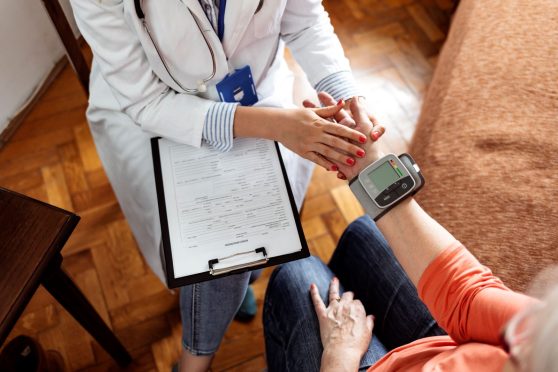If you went to the doctor’s office expecting to see, well, a doctor, you might be in for a surprise.
The first provider that many patients see on their routine visit is often a nurse practitioner or a physician assistant.
But is that expected, or is it time to call the doctor? We asked an expert.
Find a doctor near me
Start hereA nurse practitioner or physician assistant can diagnose and treat patients like doctors do.
There’s a number of different types of advanced practice providers, or APPs, who diagnose and treat patients, much like a doctor would.
Some of these professionals include:
- Physician assistants (PA)
- Nurse practitioner (NP or APRN)
- Certified nurse midwife (CNMs)
- Certified registered nurse anesthetist (CRNAs)
“APPs are board-certified medical providers who are educated and proficient in assessing, diagnosing and treating patients in a variety of medical and surgical specialties,” explains Brooke Sullivan, PA, advanced practice provider manager at St. Vincent’s Medical Center in Bridgeport.
> Related: 7 Health Tips for Your 30s
So, how do advanced practice providers and doctors differ?
APPs can do many of the same things as doctors – they can evaluate patients, order and interpret testing, diagnose patients, prescribe medication and treat patients.
But the difference comes down to the level of education. All of them have their bachelor’s degree in different fields, but then:
- Doctors go through four years of medical school, followed by a residency and sometimes a fellowship.
- Physician assistants attend specialized schools that last two to three years and incorporates clinical training.
- Nurse practitioners are first registered nurses, and then pursue either a master’s degree or doctorate of nursing in a specialized field.
Physician assistants are under the supervision of a doctor, while APRNs can apply to practice independently after three years of certification.
Much like doctors, APPs have their own specialties, so you may see them in your primary care office, at urgent care or in the hospital.
“In the hospital, APPs work in almost every specialty and will most certainly be a part of a patient’s care team in the emergency department or on any of the medical or surgical services if they are admitted to the hospital,” says Sullivan.
> Want more health news? Text StartHere to 85209 to sign up for text alerts
APPs are a standard part of any patient care team.
At many medical offices, patients have the option of seeing an APP or the doctor. But many APPs have their own patients that they see and treat for routine check-ups, sick visits and chronic conditions.


